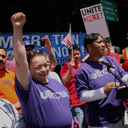
How Immigrant Activists Changed L.A.
Since the 1990s, immigrant and labor activists in Los Angeles have worked together to build a powerful progressive movement.


Since the 1990s, immigrant and labor activists in Los Angeles have worked together to build a powerful progressive movement.
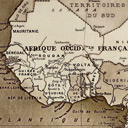
Why did the nation-state model win out, when the alternatives were supposedly so compelling?
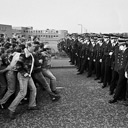
The popular 2014 film Pride neatly dramatizes how queer–labor solidarity during the miners’ strike pushed back against Margaret Thatcher’s combination of social conservatism and market nihilism.
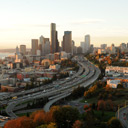
Will tech billionaires overwhelm the city’s resurgent progressive tradition?

“Sledgehammering feminine shame and smearing menstrual blood all over its covenants” isn’t a perfect description of what Kipnis has done with her writing, but it comes close.
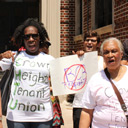
The problems of Brooklyn’s gentrifying neighborhoods won’t be solved by a housing-market version of “ethical consumption.” It’s going to take collective action. And a new tenant movement is leading the way.

In 2011, Tawakkol Karman helped lead the overthrow of dictator Ali Abdullah Saleh—and kickstart a broader struggle for women’s rights. But today, as Houthi rebels threaten to take control, Yemen’s women activists fear their struggle is being sidelined.
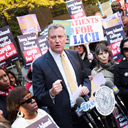
As admirable as de Blasio’s early achievements have been, they have only begun to address the massive problems the majority of New Yorkers face: poverty, unemployment, low wages, exorbitant housing costs, educational failure, and the disproportionate harassment of young men of color.
To read Rafia Zakaria’s original article, click here. To read Zakaria’s reply to Meredith Tax, click here. What Kind of Women’s Empowerment? Why do Muslim girls in the West run away to join ISIS? Rafia Zakaria argues that they are …

With a massive military, political, and media apparatus already doing a fine job turning Islamists into enemies— and corpses—why should the left join the “ideological wars”? A debate.

Most leftists have no difficulty opposing Hindu nationalists, zealous Buddhist monks, and the messianic Zionists of the settler movement. Why won’t they take a firm stance against Islamists?

Facing the threat of bankruptcy, the city of Reading, Pennsylvania is resisting Detroit-like austerity—and instead nurturing worker co-ops along with other “solidarity economy” approaches designed to make businesses, finance, and utilities more democratic.

To dwell solely on the grim events in Washington is to neglect the more complicated and, potentially, more hopeful reality taking shape in American cities today.
Introducing our Winter issue.

How U.S. policy, ancestral wounds, and international law have led to an era of ocean imperialism
The democratic left has always operated on a theory of trickle-up politics. Strikes, protests, and acts of civil disobedience all begin at the bottom—on the shop-floor, in the university, at the town square—and then make their way up. The abolitionists …